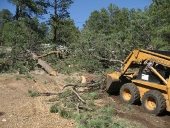
























paul wheaton wrote:I will be interviewing helen for a podcast on friday. What questions do you all have for her?
I like this sort of thing.




www.thehappypermaculturalist.wordpress.com






Home & LifeStyle Building Training. How to transition from the Rat Race to Freedom!
https://upvir.al/56817/lp56817
Also, Chechout My YouTube Channel
https://www.youtube.com/channel/UC-rd5G_2jWSV-sAi-xpdFZA




Mike Sawley wrote:
Please list a few calorie-dense crops that one might grow in a homestead setting in order to obtain sufficient yields to sustain a small family, or at least approach that level. How many acres per person would you guess is needed to sustainably support a veganic family, and could that number go down a bit if the family incorporated animals into the system?

Idle dreamer








Home & LifeStyle Building Training. How to transition from the Rat Race to Freedom!
https://upvir.al/56817/lp56817
Also, Chechout My YouTube Channel
https://www.youtube.com/channel/UC-rd5G_2jWSV-sAi-xpdFZA




Dan alan wrote:I have been growing bio intensive and it really is a great way to get everyone fed without a lot of land. however, the methods are very labor intensive. I now compost in place (as sheet mulch) and it seems to work just a well. This year I am trying it with hooglekulture too. Transplanting is more labor intensive than I'd like, but it does work very well with the mulched beds. I am using some of Helens ideas of growing my fertilizer too..
Either way it keeps me fed until my fruit and nut trees mature. More and more I am liking growing perennials, and in the long run I want only perennials. The question is what trees/plants will it take to get a nutritionally complete diet..









| I agree. Here's the link: http://stoves2.com |






